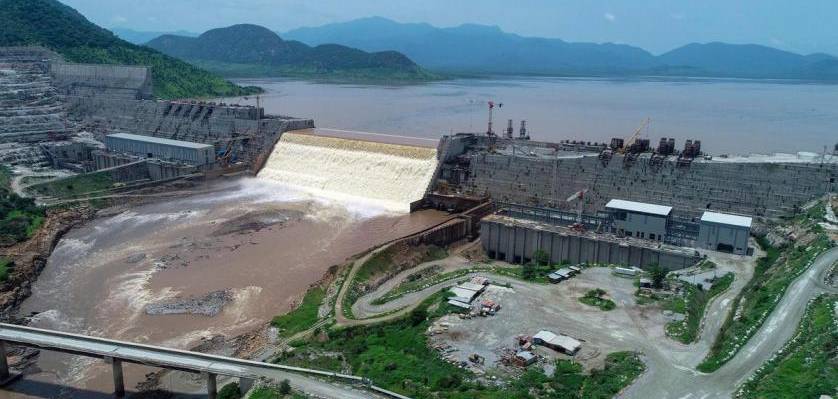
Ethiopia, Sudan and Egypt have found themselves around the negotiating table over a project that crystallizes tensions.
In 2013 Ethiopia started its project to build a dam called the Great Nile Dam (GERD). Located upstream of the river, it should eventually become the largest hydroelectric dam in Africa with an installed capacity of 6,500 MW.
This project, which has never really won the support of Sudanese and Egyptian neighbors, continues to fuel concerns, especially since July 2020 when Ethiopia began filling the dam.
As the first rains season approaches, the tension escalates and the threats become more pressing. Ethiopia intends to take advantage of this season to speed up the impoundment of the dam. For their part, Egypt and Sudan are worried about the repercussions that this water deprivation could have on their economies. . On Monday March 30, President Abdel Fattah al-Sisi warned that "no one can afford to take a drop of water from Egypt, otherwise the region will experience unimaginable instability ."
Sudanese side, the reaction is in tune. The country, which affirms not to rule out any option to defend its interests, echoed Egypt in the person of its Minister of Foreign Affairs, Mariam Al Mansoura Elsadig Almahdi, who declared "Ethiopia threatens the peoples of the Nile basin, and Sudan directly. Without a new program, Ethiopia has a boulevard in front of it to put the peoples of the region and the entire African continent in imminent danger.
Last Tuesday, at the initiative of Felix Tshisekedi, Congolese head of state and current president of the African Union, a new meeting was organized in Kinshasa with the three protagonists in order to resolve the situation and find a solution. a satisfactory outcome for all. But once again, the negotiations were unsuccessful and everyone stuck to their positions. Ethiopia will continue to fill its dam as can be seen from the statements of Ethiopian Minister of Water, Seleshi Bekele, at a press conference: “ As construction progresses, filling takes place. We do not renounce it at all ”.
Egyptians and Sudanese, for their part, reiterated their threats of reprisals. Blaming Ethiopia for not having established a tripartite agreement from the outset on the operation of the dam before filling begins, they are now worried that their water supply is threatened. Indeed, Egypt draws more than 90% of its water needs from the Nile, which leads the Egyptian president, Abdel Fattah al-Sisi, to raise his voice again: "I say to our Ethiopian brothers: do not touch a drop of water from Egypt because all options are open ” . Sudan, meanwhile, fears its own dams could be damaged if Ethiopia fully replenishes GERD before a deal is reached.
It is therefore in a context of deep disagreement that the three countries parted ways. Let us hope that they quickly find the path of diplomacy in order to appease an already very unstable situation.
Posted on 2021-04-10 07:00








Comments